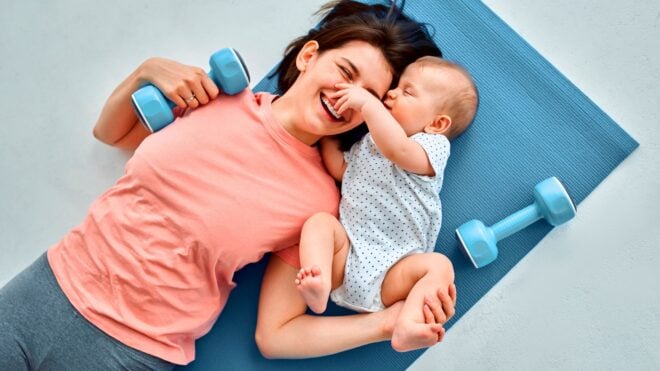
Children and adolescents are observant and perceptive, often modeling their parents' and adult figures’ behavior to navigate their choices. Keeping this in mind, parents need to serve as healthy role models in their own behaviors around food and body image, both in person and on social media.
It is important for parents to examine their own attitudes, beliefs, prejudices, and behaviors about food, weight, body image, physical appearance, health, and exercise. And what’s even more important is that parents “own it” (i.e., recognize and acknowledge) when they are not modeling this – and make a concerted effort to change.
It’s OK if you make a mistake — all parents can slip up, get heated, or not even realize that what they are saying/doing is coming out wrong. What’s important is that this isn’t consistent behavior, and once again, that you “own it,” apologize, and correct the behavior.
Here are some examples of unhelpful and unhealthy statements that parents sometimes say in front of their kids and the lasting impact they can make.
“I can’t have this (dessert, fried foods, etc.) because I’m on a diet and trying to lose weight”
Remember, adults serve as key role models for their children. Using words like “diet” and outwardly discussing wanting to lose weight is inappropriate. This can create feelings of deprivation and unhealthy patterns. Our goal is to help children learn that there are no foods that should be off-limits, hence the term “bad vs. good” when it relates to food.
“I’m going to fast tomorrow since I ate so much today”
This can perpetuate an unhealthy pattern of eating behaviors that we see in many individuals, referred to as the binge/restriction cycle. This is a pattern of disordered eating influenced by both physical and emotional signals in the body. An individual will eat larger amounts of food, inducing feelings of guilt and shame that result in periods of intake restriction. The circle will continue, setting up recurring patterns of physical hunger and craving, resulting in the consumption of excessive food.
“I am so upset about the size of my belly; I am going to start a specific diet to lose the belly fat”
Parents, please stop saying things that will only perpetuate the misinformation that so many kids are exposed to on social media that somehow one can fix certain parts of their body with “magic” pills, diets, or remedies. This misinformation is contributing to the rise in unhealthy eating and dieting behavior among children and teens, which is often a precursor to the development of eating disorders. Therefore, it’s crucial that parents model appropriate and accurate information about health and eating.
“I am feeling so guilty about my eating habits. I am going to be sure to exercise for hours tomorrow to work it off”
Exercise is important for all humans — it promotes healthy muscles, including the heart. Exercise and movement strengthens the heart, a vital organ, and improves muscle tone, which is especially important for aging females. The purpose of exercise should not be focused on weight loss or seen as a compensatory behavior for eating. Many individuals that struggle with eating disorders engage in compulsive exercise, which is not healthy or helpful; therefore, we want parents to promote healthful movement and activity that is joyful and promotes health and well-being.
Embracing healthy behaviors and beliefs when it comes to food and body image early in your child’s life is critical in setting them up for success as they age. Helping your child develop a positive body image has the potential to change the way they look at themselves and their body for the rest of their lives. This process requires a lot of patience and using intentional words, but it will benefit both you and your child in the long-term. Remember, our goal is to raise a child who is happy and healthy and believes they are the best version of themself.




